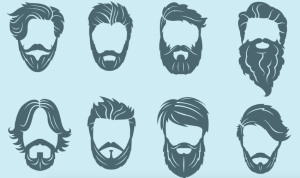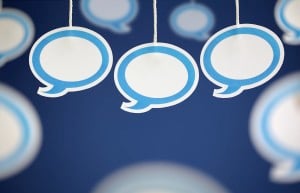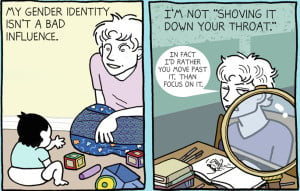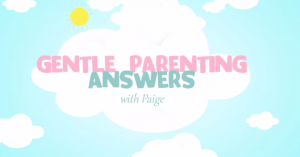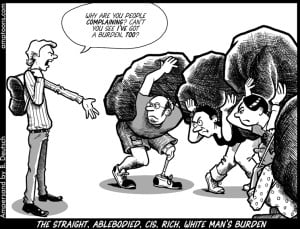Originally published on Medium and republished here with the author’s permission.
When I was a small, school-age child, perhaps seven or eight, I brought a new book to class for morning reading.
It happened to be Baby Island, a 1937 novel that Wikipedia describes as “Robinson Crusoe… but with four babies.” My intention, on that brisk fall morning, was to pull the paperback out of my backpack and open it to my bookmark.
“What is that? Why are you reading that?” someone asked. A cluster formed around my desk, to see the boy who was not reading a very boyish book.
Babies, of course, were the realm of moms – of women. I wasn’t sure what to say. It was a story. I wanted to find out what happened next.
There was never a restriction, in my house, of what a boy should or should not consume. I read Nancy Drew and the Hardy Boys both. The complete Anne of Green Gables saga. Little House on the Prairie and all the (admittedly tedious) sequels.
And eventually science fiction and fantasy, in which I read male authors – Orson Scott Card, Isaac Asimov, Ray Bradbury – as well as women such as Margaret Weiss, J.K. Rowling, and Madeleine L’Engle.
With age came music. At summer camp before junior year, as my bunkmates obsessed over Sublime and the Red Hot Chili Peppers and taped scissored posters of women in bikinis (and less) on the walls, I was hiding my Fiona Apple cassette.
High school wasn’t any different. It was the height of Limp Bizkit: The men of Ventura High were expected to listen to music that was heavy and hard. Punk at least, but metal was even better. I liked some of that: Everclear and Blink-182 and a few more, but mostly I was interested in Ben Folds Five and Elliott Smith, and drew scorn for it.
Eventually, I found the weird kids and the outcasts and started worrying about impressing music snobs instead, but there were always new lines being drawn.
In college, I had to defend watching Sex and the City episodes. Cocktails? Those were “girly drinks.” To be a man was to drink corporate beer and do shots, perhaps because the point was to get drunk enough to forget being a man wasn’t much fun.
And there was always the ugly static of someone, perhaps a friend, using “gay” or worse as a slur to describe another man’s clothing choices, attitude, haircut, whatever.
I know now, thanks to my parents and the remarkable independent bookstore I spent my childhood in, that I was receiving an early lesson in equality, open-mindedness, and feminism.
I am grateful that somehow that was enough to carry me onward through non-masculine-approved behavior — through music, through watching Sailor Moon before school every morning, through not giving a shit about football.
Rejecting male critiques, as a man, was a pretty easy burden for me to bear. I am white, straight, and cisgender: I never had to deal with the abuse and marginalization that faces people of color and the LGBTQIA+ community.
The worst thing to happen to me as a Jew, besides a lingering sense of otherness, was going to middle school with a pair of skinhead neo-Nazis who knew a few slurs, but never got around to beating any of us up.
And yet, at every turn, the masculine path was clearly set in front of me. Strength, anger, endurance, violence, stoicism. This is for boys, this is for girls. Don’t dress like this, don’t watch this, don’t listen to this. Don’t, don’t, don’t.
What could possibly happen, dudes? Could it be that we might experience a wider view of the human experience? Could it be that women are people and sensitivity is a universal quality? Could it be that Fiona Apple is a better songwriter than Bob Dylan?
This morning, after engaging on Twitter with a man heckling feminists and “beta males” (that term a truly awful feat of insecurity and self-denial), I received a handful of heckles myself: mostly, comments that I own a cat.
This was the worst they could come up with: I am a failed man, a beta male incapable of reason or seriousness because I own a foster animal that isn’t a dog. Or isn’t a 150-pound police-trained killer. Or isn’t an actual fire-breathing dragon. I don’t know, I must’ve set the Man Rules e-mails to spam.
The effort to define manhood is a source of artificial strength, a buttress against crumbling walls. Men who aspire to such stereotypes are searching for a safe and simple path, the same way people turn toward religion or any form of dogma.
If you never have to look outside your prison walls, you never have to be afraid of what you might encounter. Thinking for yourself eases away. The world never changes, and we know change is hard.
I think the white-knuckled grip some men keep on what defines a man, on trying to forever be some ersatz version of John Wayne or Batman or Han Solo or a SEAL Team 6 commando who also drinks scotch and fights fires, is a form of sad self-defense — a suffocating shield, being brandished as a sword.
Consider, oh male reader, someone you disagree with: a climate change denier or Ku Klux Klan member, maybe. Aren’t they clinging to an old idea of the world, one they can control, one that isn’t new or different or equal or, let’s just say it, actually happening?
As a feminist, I know that breaking down the toxic social expectations around women is work intended to free them. To allow them to experience life and been understood as the whole and complicated people we all are.
I know that men are just as trapped and just as much in need of liberation. That is, if they can face their fears of anything coded as feminine, gay, or merely different.
Aren’t men supposed to be brave?
Men don’t have to be anything. You just have to be you. Fuck defining that.
[do_widget id=’text-101′]
David Greenwald is the Oregonian pop music critic and has written for Rolling Stone, GQ, and the Los Angeles Times, among others. Follow him @davidegreenwald and or via his weekly newsletter.
Search our 3000+ articles!
Read our articles about:
Our online racial justice training
Used by hundreds of universities, non-profits, and businesses.
Click to learn more


